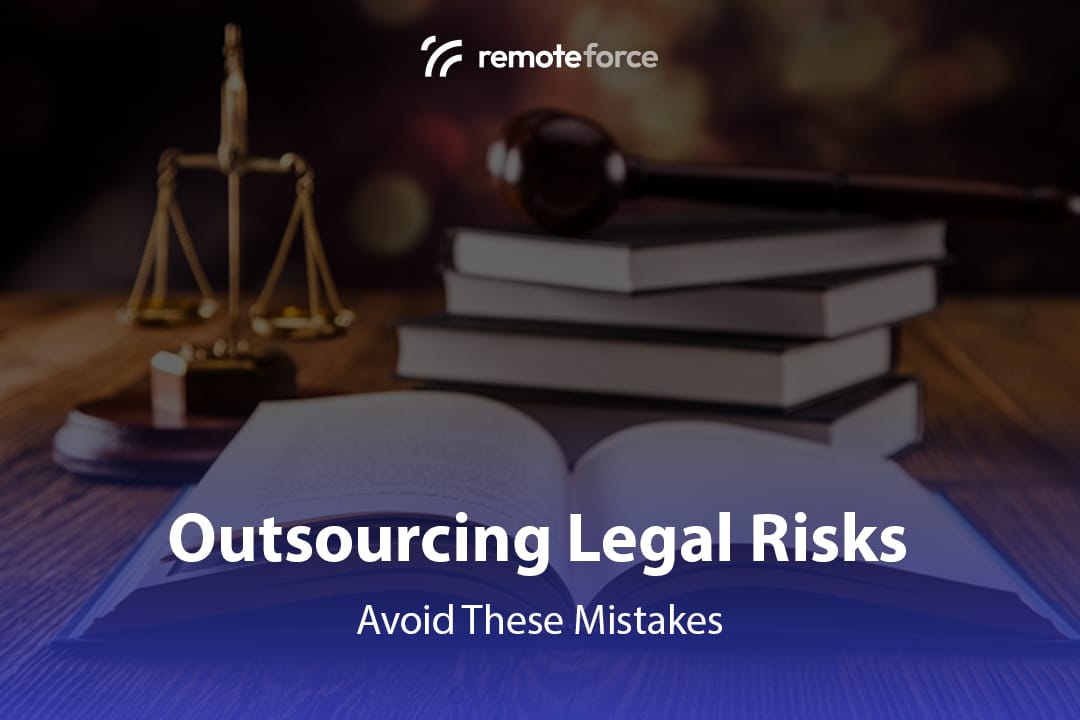Embarking on a career as a secretary can be a remarkably rewarding journey, opening doors to diverse industries and offering a stable, in-demand professional path. Many individuals find the role of a secretary to be a fulfilling one, characterized by dynamic daily tasks and the opportunity to be an indispensable part of an organization. We understand you’re looking for a clear roadmap, and this guide is designed to provide just that, detailing the necessary steps, essential qualifications, and promising growth avenues.
The secretarial profession, it goes without saying, has evolved significantly. Gone are the days of purely dictation and typing; today’s secretaries are often administrative linchpins, pivotal to the smooth operation of any busy office. Therefore, a comprehensive understanding of the modern secretarial role is crucial for anyone considering this career.
Table of Contents
ToggleUnderstanding the Evolving Role of a Modern Secretary
The contemporary secretary, often referred to as an administrative assistant or executive assistant, performs a wide array of tasks that extend far beyond traditional clerical duties. In point of fact, these professionals are frequently the organizational backbone of their departments or executives. Their responsibilities are multifaceted and critical to operational efficiency.
Modern secretaries are expected to manage schedules, coordinate meetings and travel arrangements, prepare reports and presentations, and handle correspondence. Furthermore, they often serve as the first point of contact for clients and stakeholders, making strong communication and interpersonal skills absolutely paramount. The ability to multitask effectively and maintain composure under pressure is, indeed, a hallmark of a successful secretary.
In many organizations, secretaries also take on project management responsibilities, assist with budget preparation, and oversee the maintenance of office supplies and equipment. Consequently, a proactive approach and a keen eye for detail are highly valued attributes. Understanding these evolving expectations is the first step toward preparing for a successful secretarial career.
Essential Qualifications and Skills for Aspiring Secretaries

To thrive in this dynamic field, a combination of education, hard skills, and soft skills is essential. While specific requirements can vary by employer and industry, certain qualifications are broadly applicable and will undoubtedly enhance your candidacy.
Educational Foundations for a Secretarial Career
Typically, a high school diploma or GED is the minimum educational requirement for entry-level secretarial positions. However, many employers increasingly prefer candidates who have completed some post-secondary education, such as an associate’s degree in business administration, secretarial science, or a related field. For those aspiring to more specialized roles, like legal or medical secretaries, specific vocational training or certifications are often necessary and highly advantageous.
Obtaining certifications, such as the Certified Administrative Professional (CAP) offered by the International Association of Administrative Professionals (IAAP), can also significantly boost your credentials and demonstrate a commitment to the profession. These programs usually cover topics like office management, communication technology, and business writing, to name but a few.
Mastering Crucial Hard Skills
Proficiency in a range of technical skills is non-negotiable in the modern secretarial landscape. First and foremost, excellent typing speed and accuracy are fundamental. Beyond this, a strong command of office productivity software is critical. This includes word processing programs (e.g., Microsoft Word, Google Docs), spreadsheet software (e.g., Microsoft Excel, Google Sheets), and presentation applications (e.g., Microsoft PowerPoint, Google Slides).
Familiarity with email and calendar management tools, such as Microsoft Outlook or Google Workspace, is also indispensable. Many secretarial roles now involve database management, online research, and sometimes even basic bookkeeping or website content management. Therefore, a willingness to learn new technologies is a definite asset.
Cultivating Indispensable Soft Skills
While technical skills are vital, soft skills are what truly differentiate an exceptional secretary. Outstanding communication skills, both written and verbal, are at the top of this list. Secretaries must be able to convey information clearly, concisely, and professionally to a diverse range of individuals.
Organizational skills are, of course, paramount. The ability to manage multiple tasks simultaneously, prioritize effectively, and maintain meticulous records is crucial for keeping an office running smoothly. Closely related to this is time management – being able to meet deadlines and manage the schedules of others efficiently is key.
Other critical soft skills include problem-solving, attention to detail, resourcefulness, and proactivity. Secretaries often need to anticipate needs and resolve issues before they escalate. Discretion and confidentiality are also incredibly important, as secretaries are frequently privy to sensitive information. A professional demeanor and strong interpersonal skills round out the profile of a highly competent secretary.
Your Step-by-Step Pathway to Becoming a Secretary
With a clear understanding of the required qualifications, we can now outline the practical steps to embark on your secretarial career. This journey involves focused effort in education, skill development, and strategic job searching.
Step 1: Acquire Relevant Education and Training
As previously mentioned, begin by ensuring you meet the foundational educational requirements. If you’re aiming for specialized roles or a competitive edge, consider pursuing an associate’s degree or relevant certifications. Many community colleges and vocational schools offer excellent programs tailored to administrative and secretarial careers. These programs not only provide theoretical knowledge but also practical skills training.
Step 2: Diligently Develop Key Secretarial Skills
Actively work on honing both your hard and soft skills. Practice typing regularly to improve speed and accuracy. Take online courses or tutorials to master office software suites. Volunteer for roles that allow you to develop your organizational and communication abilities. For instance, assisting with event planning for a local community group can provide valuable experience.
Step 3: Craft a Compelling Resume and Cover Letter
Your resume and cover letter are your primary marketing tools. Tailor them to highlight your relevant skills, education, and any experience, even if it’s from volunteer work or academic projects. Use action verbs to describe your accomplishments and quantify your achievements whenever possible. Ensure your documents are error-free, professionally formatted, and specifically address the requirements of each job you apply for. We cannot stress enough the importance of a polished presentation.
Step 4: Prepare For and Ace Secretary Interviews
Thorough preparation is key to interview success. Research common interview questions for secretarial positions and practice your responses. Be prepared to provide specific examples of how you’ve used your skills in the past. Dress professionally and arrive on time. During the interview, demonstrate your enthusiasm, confidence, and strong communication skills. Also, prepare a few insightful questions to ask the interviewer, as this shows your genuine interest in the role and the company.
Step 5: Gain Valuable Entry-Level Experience
If you’re new to the field, gaining entry-level experience is a crucial stepping stone. Look for internships, part-time positions, or temporary roles that can provide practical exposure to an office environment. These opportunities allow you to apply your skills, learn from experienced professionals, and build your professional network. Every bit of experience counts and contributes to a stronger resume.
Exploring Different Types of Secretary Roles and Specializations

The secretarial field is not monolithic; it encompasses a variety of roles, each with its unique focus and demands. Understanding these specializations can help you tailor your career path to your interests and strengths.
The Vital Role of an Executive Secretary or Assistant
Executive secretaries, or executive assistants (EAs), typically support senior-level managers and executives. This role demands a high level of professionalism, discretion, and advanced administrative skills. EAs often manage complex schedules, coordinate high-level meetings, handle confidential documents, and may even act as a proxy for their executive in certain situations. This is often seen as a pinnacle role within the administrative field.
The Specialized World of a Legal Secretary
Legal secretaries work in law firms, corporate legal departments, or government agencies. This specialization requires a strong understanding of legal terminology, procedures, and documentation. Responsibilities include preparing legal correspondence, formatting legal documents, scheduling depositions, and maintaining case files. Accuracy and attention to detail are absolutely critical in this demanding environment.
The Compassionate Realm of a Medical Secretary
Medical secretaries perform administrative duties in hospitals, clinics, and private medical practices. They manage patient records, schedule appointments, handle billing and insurance claims, and transcribe medical dictation. Familiarity with medical terminology, healthcare regulations (like HIPAA in the United States), and medical billing software is essential. A compassionate and empathetic approach is also highly valued.
The Broad Scope of an Administrative Secretary
This is often a more generalist role found in various industries. Administrative secretaries handle a wide range of tasks, including office management, customer service, data entry, and supporting multiple staff members. Versatility and the ability to adapt to different demands are key strengths for individuals in this position.
The Rise of the Virtual Secretary or Assistant
With the growth of remote work, the demand for virtual secretaries (also known as virtual assistants or VAs) has surged. VAs provide administrative, technical, or creative assistance to clients remotely from a home office. This role offers flexibility and autonomy but requires strong self-discipline and excellent remote communication skills. Services can range from scheduling and email management to social media management and bookkeeping.
Career Outlook and Growth Opportunities in the Secretarial Field
The career outlook for secretaries and administrative assistants remains generally stable. While automation and technology continue to reshape some aspects of the role, the need for skilled professionals who can manage complex administrative tasks and provide human-centric support endures. Indeed, the U.S. Bureau of Labor Statistics projects a steady demand in the coming years, though growth rates may vary by specialization and geographic location.
Understanding Salary Expectations
Salary levels for secretaries can vary significantly based on factors such as experience, education, industry, geographic location, and the specific responsibilities of the role. Entry-level positions will naturally command lower salaries, while experienced executive assistants or specialized secretaries (e.g., legal or medical) can earn substantially more. Researching average salaries in your specific area and for your target role is always a good practice.
Charting Your Advancement Path
A secretarial role can be a launchpad for numerous advancement opportunities. With experience and continued professional development, secretaries can progress to senior administrative roles, such as office manager, senior executive assistant, or administrative services manager. Some may choose to specialize further or transition into related fields like human resources, project management, or event planning. The skills acquired as a secretary are highly transferable and valued across many professions.
The Importance of Continuing Education and Professional Development
To remain competitive and advance in your career, a commitment to lifelong learning is crucial. Stay updated on the latest office technologies and software. Consider pursuing advanced certifications or taking courses in areas like project management, business communication, or leadership. Joining professional organizations like IAAP can provide valuable networking opportunities, resources, and access to continuing education programs.
Navigating the Future of the Secretarial Profession
The secretarial profession is undoubtedly evolving, shaped significantly by technological advancements and changing business needs. Artificial intelligence and automation tools are increasingly capable of handling routine administrative tasks, such as scheduling and data entry. However, this does not signal the obsolescence of the secretary.
Instead, the role is shifting towards more complex, strategic, and human-focused responsibilities. Skills such as critical thinking, emotional intelligence, complex problem-solving, and advanced communication are becoming even more valuable. Secretaries who can leverage technology to enhance their efficiency while focusing on higher-level support will be well-positioned for future success. The enduring value of a skilled secretary lies in their ability to provide nuanced, adaptable, and personalized support that technology alone cannot replicate.
Your Secretarial Career Journey and Beyond
Embarking on a career as a secretary offers a path filled with opportunities for professional growth and the chance to become an invaluable asset to any organization. By diligently acquiring the necessary qualifications, honing essential skills, and strategically navigating the job market, you can build a fulfilling and successful career in this dynamic field. The journey requires dedication, adaptability, and a commitment to excellence.
As you consider your options and the diverse support modern businesses require, remember that the landscape of administrative assistance is continually expanding. For businesses seeking top-tier, flexible secretarial services without the overhead of traditional hiring, innovative solutions are available. If your organization is looking to enhance its administrative capabilities with professional, remote talent, we invite you to explore the comprehensive secretarial services offered by RemoteForce. Our skilled professionals are equipped to handle a wide array of administrative tasks, allowing your team to focus on core business objectives. Partner with RemoteForce and experience the efficiency and expertise that our dedicated remote secretaries bring to the table.




